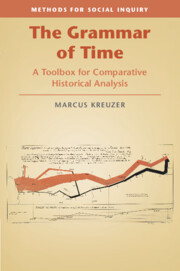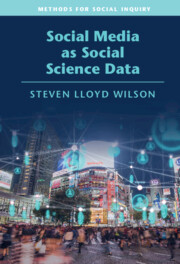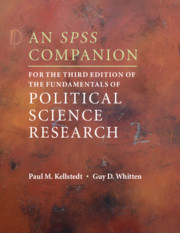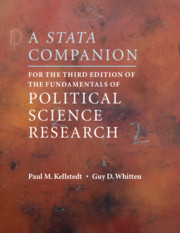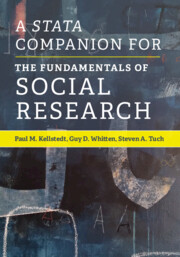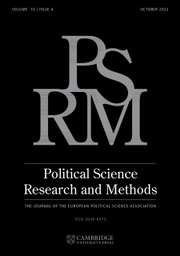The Grammar of Time
A Toolbox for Comparative Historical Analysis
£23.99
Part of Methods for Social Inquiry
- Author: Marcus Kreuzer, Villanova University, Pennsylvania
- Date Published: May 2023
- availability: Available
- format: Paperback
- isbn: 9781108718233
£
23.99
Paperback
-
Kreuzer offers guidance to scholars looking to comparative historical analysis (CHA) for the tools to analyze macro-historical questions. Like history, CHA uses the past to formulate research questions, describe social transformations, and generate inductive insights. Like social science, CHA compares those patterns to explicate generalizable and testable theories. It operates in two different worlds—one constantly changing and full of cultural particularities and another static and full of orderly uniformities. CHA draws attention to the ontological constructions of these worlds; how scholars background historical and geographic particularities to create a social reality orderly enough for theorizing, while others foreground those particularities to re-complexify it to generate new inductive insights. CHA engages in ontological triage, dialogue between exploration and confirmation, and conversation in how to translate test results into genuine answers. This book is supplemented by online materials including introductory videos, diagnostic quizzes, advanced exercises, and annotated bibliographies.
Read more- Provides an introduction to comparative historical analysis (CHA) for students and scholars across the social sciences
- Explains how to use the tools CHA has to offer
- Supplemented by a variety of online resources
Reviews & endorsements
'Testing theories with historical data has become increasingly popular among social scientists. Often, however, history is 'used' uncritically, after stripping social and political phenomena of their spatial and temporal context, or by forcing monocausal models on complex and distant realities. Kreuzer's impressive volume offers a very persuasive warning against such strategies and proposes a conceptual apparatus to use history consciously in the social sciences. Written in a very accessible language, this book should be required reading for all graduate students and social scientists who plan to engage with history.' Giovanni Capoccia, Professor of Comparative Politics, University of Oxford
See more reviews'Kreuzer reminds us that doing history is much more than mining data from a more or less remote past to test our hypotheses or establish some causal effect. He offers us a nuanced and thorough guide for how to go about it and, in doing so, he widens our horizons and improves our research.' Stathis N. Kalyvas, Gladstone Professor of Government, University of Oxford
Customer reviews
Not yet reviewed
Be the first to review
Review was not posted due to profanity
×Product details
- Date Published: May 2023
- format: Paperback
- isbn: 9781108718233
- length: 180 pages
- dimensions: 228 x 152 x 12 mm
- weight: 0.33kg
- availability: Available
Table of Contents
Introduction: how to study a disorderly world in an orderly fashion
Section I. The Temporal foundations of comparative historical analysis
1. Historical thinking: stop talking about testing for once!
2. Varieties of historical time: history is not a dummy variable
3. Physical time: capturing the rhythms of history
Section II. How to use history to describe patterns
4. A primer on the origins of electoral systems
5. Eventful analysis: using dates to explore patterns of (dis-) continuities
6. Longue Durée analysis: looking for serial patterns
7. Macro-causal analysis: physical time and the temporal construction of theories
Section III. What about causality?
8. situating comparative historical analysis: heterodox yet still systematic
9. Historical explanations: making sense of continuities and discontinuities
10. Causal process tracing: making testing symmetric
Conclusion: different origins and shared complementarities.-
Lecturer Resources
Find resources associated with this title
Type Name Unlocked * Format Size Showing of
This title is supported by one or more locked resources. Access to locked resources is granted exclusively by Cambridge University Press to lecturers whose faculty status has been verified. To gain access to locked resources, lecturers should sign in to or register for a Cambridge user account.
Please use locked resources responsibly and exercise your professional discretion when choosing how you share these materials with your students. Other lecturers may wish to use locked resources for assessment purposes and their usefulness is undermined when the source files (for example, solution manuals or test banks) are shared online or via social networks.
Supplementary resources are subject to copyright. Lecturers are permitted to view, print or download these resources for use in their teaching, but may not change them or use them for commercial gain.
If you are having problems accessing these resources please contact [email protected].
Sorry, this resource is locked
Please register or sign in to request access. If you are having problems accessing these resources please email [email protected]
Register Sign in» Proceed
You are now leaving the Cambridge University Press website. Your eBook purchase and download will be completed by our partner www.ebooks.com. Please see the permission section of the www.ebooks.com catalogue page for details of the print & copy limits on our eBooks.
Continue ×Are you sure you want to delete your account?
This cannot be undone.
Thank you for your feedback which will help us improve our service.
If you requested a response, we will make sure to get back to you shortly.
×
